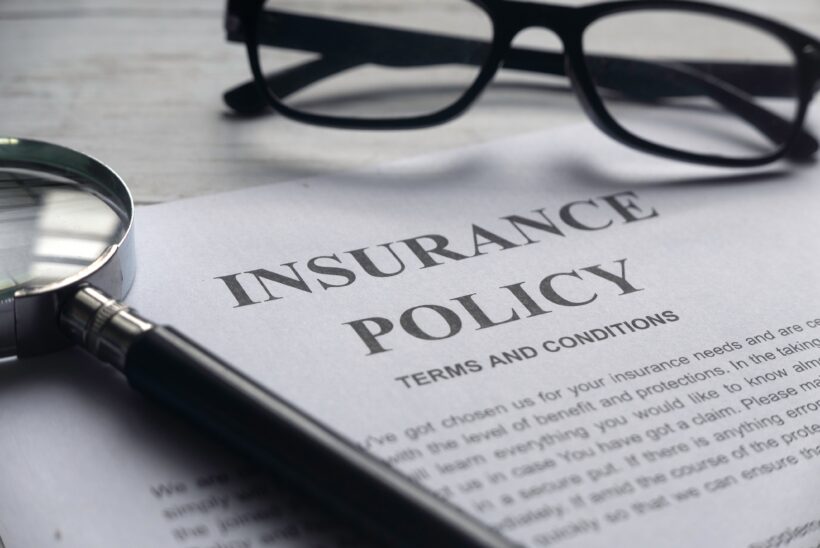In the aftermath of a collision, it is crucial to understand your rights and take the necessary steps to protect yourself. Insurance plays a vital role in these situations, but dealing with insurance companies can be complex and overwhelming. This blog post aims to provide you with valuable insights and practical guidance on how to handle insurance after a car accident, ensuring you claim your rights and receive the compensation you deserve.
Consult with an Attorney Before Accepting Any Settlement Offers

When dealing with insurance claims, it is often wise to consult with a qualified attorney before accepting any settlement offers. Henningsen Personal Injury Attorneys P.C. are experienced professionals who specialize in car accident cases and can provide you with expert legal advice. They can review your case, assess the damages, and negotiate with insurance companies on your behalf. Having legal representation ensures that your rights are protected and that you receive fair compensation for your injuries and losses.
Notify the Insurance Company Promptly About the Accident
One of the first actions you should take after a car accident is to notify your insurance company promptly. Contact their claims department and provide them with all relevant information about the accident. This step is crucial because insurance policies often have specific timeframes within which you must report an accident. Failure to do so may result in the denial of your claim. When contacting your insurance company, remain calm and provide accurate details of the incident. Remember that insurance adjusters are trained to investigate claims, so avoid admitting fault or speculating on the extent of your injuries.
Document the Accident Scene and Gather Evidence

To strengthen your insurance claim, it is essential to document the accident scene and gather evidence. Take photographs of the vehicles involved, including their positions, damages, and license plates. Capture any visible injuries sustained by yourself or your passengers. Additionally, note down the names and contact information of any witnesses present. This evidence will support your version of events and help establish liability if there is a dispute.
Seek Medical Attention for Injuries and Keep All Medical Records
Your health should be a top priority following a car accident. Even if you believe your injuries are minor, it is crucial to seek medical attention. Some injuries may have delayed symptoms or worsen over time. By obtaining prompt medical care, you ensure your injuries are properly diagnosed and treated. Furthermore, medical records serve as vital evidence for your insurance claim. Keep copies of all medical reports, bills, and receipts related to your treatment. These records will help substantiate your injuries and the expenses incurred.
Understand Your Insurance Policy Coverage and Limits

To effectively navigate the insurance process, you must thoroughly understand your policy coverage and limits. Familiarize yourself with the terms and conditions outlined in your insurance contract. Pay close attention to coverage for medical expenses, property damage, and any additional benefits you may have, such as rental car reimbursement or roadside assistance. Understanding your policy will prevent any surprises during the claims process and ensure you know what you are entitled to receive from your insurance company.
File a Police Report and Obtain a Copy for Your Records
After a car accident, it is crucial to contact the police and file a report. The police report provides an unbiased account of the incident and serves as valuable evidence when dealing with insurance companies. Ensure that all relevant information is accurately documented, including the date, time, location, and parties involved. Obtain a copy of the police report for your records, as it will be useful when filing your insurance claim.
Keep a Record of All Expenses Related to the Accident

Accidents often result in various expenses, from medical bills and vehicle repairs to transportation and loss of income. It is essential to keep a detailed record of all these expenses related to the accident. Maintain copies of medical bills, repair estimates, invoices, and receipts for any out-of-pocket costs you incur. This documentation will not only help you calculate the total amount of damages but also serve as supporting evidence when negotiating with the insurance company or presenting your case in court. Remember to include any expenses related to alternative transportation, such as rental cars or public transportation fares.
Follow Up with the Insurance Company Regarding Your Claim
After filing your insurance claim, it is crucial to follow up with the insurance company regularly. Stay proactive and maintain open lines of communication. Keep a record of all conversations, including dates, times, and the names of the representatives you speak with. Be prepared to provide any additional information or documentation requested by the insurance company promptly. Following up ensures that your claim stays on their radar and increases the likelihood of a timely resolution.
Know Your Rights if the Insurance Company Denies Your Claim

Unfortunately, there may be instances where the insurance company denies your claim or offers a settlement that does not adequately cover your damages. In such cases, it is essential to know your rights and explore your options. Consult with attorneys to understand the legal remedies available to you. They can guide you through the appeals process or assist you in pursuing a lawsuit against the negligent party. Remember, the insurance company’s decision is not final, and you have the right to fight for fair compensation.
Conclusion
Experiencing a car accident is a distressing event, but understanding your rights and effectively handling insurance claims can help alleviate some of the stress and ensure a fair resolution. By following these steps, you can navigate the insurance claims process confidently, claim your rights, and secure the compensation you deserve.
Remember, after a car accident, it is essential to prioritize your well-being and seek appropriate medical care. While dealing with insurance matters can be complex, know that there are resources available to assist you. Take control of your situation, understand your rights, and trust in the process to achieve a fair and just outcome.

